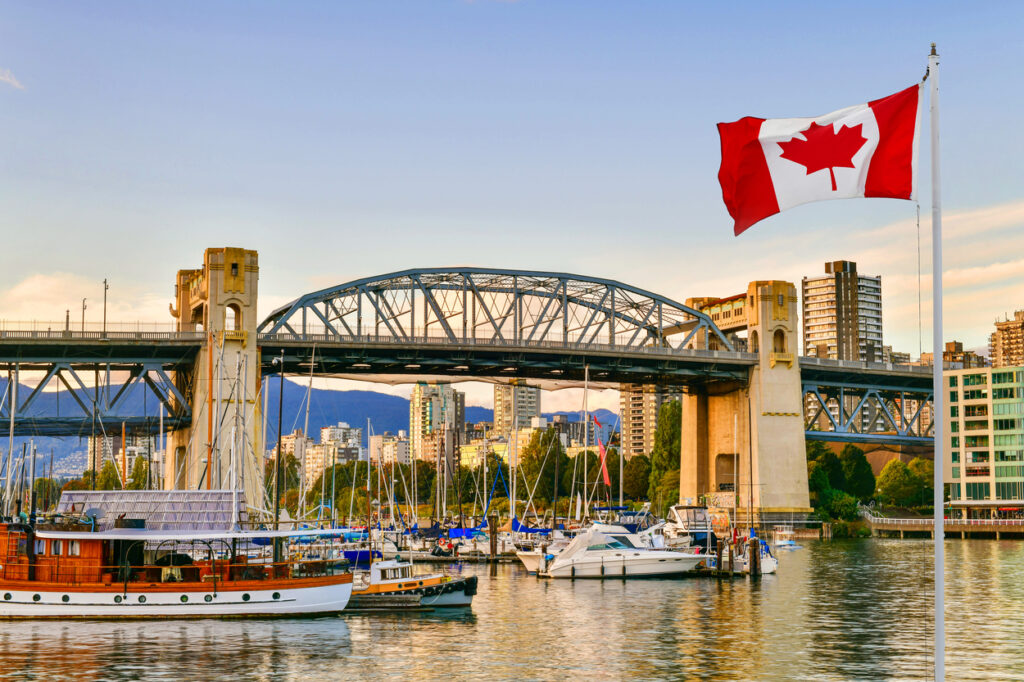The global coronavirus disease (COVID-19) pandemic, and the response of Canadian schools to it, continues to evolve daily. Understandably, international students already in Canada, as well as those planning to study here for the upcoming fall 2020 semester, are anxious about their safety and want to know the options available to them. ApplyBoard has compiled answers to some of the most common questions from international students about COVID-19.
1. What Are the Expectations for Self-Isolation If I Travel to Canada?
There is currently a mandatory quarantine period of 14 days for all individuals upon entering Canada, regardless of whether they exhibit symptoms of COVID-19. The only exemptions are for individuals who provide essential services. Additionally, all individuals will be required to pass a health check before boarding their flight to Canada and will undergo an additional assessment upon arrival in Canada. Click here to learn more.
2. How Are Canada’s COVID-19 Numbers?
As of July 10, 2020, the total number of COVID-19 cases across Canada is 106,793. This includes active and recovered cases.
3. Is Canada Safe Now?
Canada has multiple systems in place to identify and stop the spread COVID-19. For up-to-date information on Canada’s response to COVID-19, please click here.
4. Will the Government Accept Duolingo Instead of IELTS?
While the Duolingo English Test is not universally accepted by the Canadian government or all Canadian schools, more universities and colleges are accepting it for admission requirements, including many ApplyBoard partner schools. Learn more in this recent ApplyBoard blog post here, and visit the official Duolingo English Test website here.
5. My Country’s Economy Is in Trouble and I Can’t Afford to Study Abroad. What Do I Do?
ApplyBoard encourages all students to proceed with their studies whenever possible. With many courses being offered online in response to COVID-19, students can remain at home and make progress in their program, while also saving money that can be put towards future tuition and living expenses.
6. What Happens If Borders Don’t Open and I Have to Take My Entire Course Online?
If travel restrictions are still in place when programs are scheduled to start, international students enrolled in online courses will remain eligible for the Post-Graduation Work Permit Program (PGWPP). Students that have been issued or approved for a study permit, but are unable to travel to Canada due to travel restrictions, are also eligible for the PGWPP and may begin classes outside of Canada. Students that can’t travel to Canada sooner can also complete up to 50% of the program while outside Canada. Click here to learn more.
7. Will My Health Insurance Cover Any COVID-19 Related Illnesses In Canada?
Most schools in Canada require international students to obtain private healthcare prior to entering Canada. Many schools are offering international students the option to request a reduction once they are back in classes for the time they spent studying online. Please check with your school for information on their specific policy.
8. When Will Embassies and Visa Application Centres Open Again?
Most embassies and Visa Application Centres (VACs) have temporarily closed or are operating with limited hours and services. You are encouraged to check the embassy or VAC website before visiting in-person. For those that have already reopened, safety measures are in place to prevent the spread of COVID-19. Click here for more information.
9. How Delayed Will Visa Applications Be?
Due to the impacts of COVID-19, the Government of Canada cannot process applications normally or provide accurate processing times.
The Canadian government will be prioritizing applications from Canadians trying to return to Canada, vulnerable people, and people who perform or support essential services. If you have an application in progress, please check the status of your application online and make sure your contact information and your application details are up-to-date. Click here for more information.
10. Will I Get a Refund If My Visa Is Denied?
Refund policies will vary by educational institution. Typically students who are unsuccessful in obtaining a study permit will be refunded their tuition payment minus an administrative fee. Please keep all study permit rejection documentation as schools may require verification of refusal to issue your refund. To find out more, please consult your school’s website or administration department.
11. Can I Submit My Visa Application If I Couldn’t Gather All Required Documents Due to COVID-19 Closures?
Until further notice, Immigration, Refugees and Citizenship Canada (IRCC) offices will not refuse an application for non-compliance. IRCC officers will continue to request additional supporting documentation or necessary actions (such as biometrics and medical exams) as part of the application process and will keep the applications open until documents are received or evidence is provided that action has been taken. Please see more information in the processing section further below. Click here for more information.
12. What If I Can’t Get My Biometrics Due to the Lockdown?
Canada is now giving applicants an extension for gathering biometrics, until the collection sites reopen. Some Visa Application Centres (VACs) are starting to reopen. You can check the VAC website for the location closest to them, and see if they can book an appointment to give biometrics as soon as they are able.
13. Will Online Courses Impact My Post-Grad Work Permit (PGWP)?
Online courses won’t affect your PGWPP eligibility.
According to the Government of Canada: If your in-class courses are being moved to an online-only format because of COVID-19, you’re still eligible for the Post-Graduation Work Permit Program (PGWPP).
If you have a study permit, or have been approved for a study permit for a program starting in the spring, summer or fall, but you can’t travel to Canada at this time due to travel restrictions, you’re also still eligible for the PGWPP.
If you’re in this situation, you may:
- Begin your classes while outside Canada, and
- Complete up to 50% of your program while outside Canada, if you can’t travel to Canada sooner.
If you start your studies in fall 2020, you won’t have time deducted from the length of your post-graduation work permit for studies you complete while outside Canada between fall 2020 and December 31, 2020. Click here for more information.
14. Will There Be Tuition Discounts If I Have to Take My Course Online?
Tuition costs are set by each institution. The majority of tuition costs have not been reduced for the coming year. Many institutions are offering hybrid course loads, where you take a mix of in-person and online classes. In Canada, you will be able to take 100% online classes and still have that count towards your post-graduate work permit.
To find more information on tuition costs for the 2020-2021 semester, please visit your school’s website or check the school page on the ApplyBoard Platform.
15. When Things Return Back to Normal, Will I Only be Allowed to Work 20 Hours a Week Again?
Currently international students are temporarily allowed to work more than 20 hours if they are:
- A study permit holder in an academic session
- Eligible to work off campus, and
- Able to provide an essential service
This change is in effect until August 31, 2020, at which time the Canadian government will re-evaluate. At this time we have no indication if this plan will continue when things return to normal. Click here for more information.
As the COVID-19 situation continues to evolve, the information above may become out-of-date. We encourage you to check the Government of Canada, ApplyBoard, and the school’s websites for the most accurate information.



